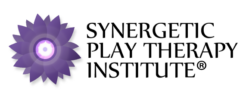by Lisa Dion, LPC, RPT-S
In this season of gratefulness, many of us find ourselves being thankful for our jobs: we love what we do and who we help. The opportunity to learn is another area where it’s easy to find gratitude.
One of the reasons for this is the endless number of resources available: one modality, two modalities, three modalities, four – there’s so much knowledge for us in store!
Seeking this knowledge is important to your practice. Of course, it benefits your clients – play therapy is not one-size-fits-all (for therapists or the children we see). But that’s among the things that make this field so exciting: it’s an ever-evolving area with something new forever on the horizon.
For us, that means that growth never ends: the proverbial book of knowledge never slams shut for a final time.
Thus, as 2018 beckons, new modalities do as well. Challenge yourself to embrace a novel way of thinking (or look into something that’s been around a while – it might be new to you). At best, you’ll find a theory or paradigm that truly resonates with who you are (as a person and a clinician). At worst, you’ll find something that doesn’t work for you (but you’ll gain extra knowledge in the process).
There are several benefits for those willing to experience new modalities (in the new year or anytime). These, in part, include:
A wider, more diverse arsenal: As mentioned above, no model of play therapy fits every single child. What works for one kiddo may not work for another (even when they’re dealing with similar issues or experiencing similar circumstances). A wider arsenal casts a wider net.
A bigger toolbox: Play therapy is a buffet, not a one-course meal. Filling your toolbox with different ideas and concepts allows you to discover your true authentic self (and that helps your clients the most). It is important to find a play therapy paradigm that you jive with as your secure base, but don’t limit yourself there. Find your paradigm and then grab other ideas to add. Keep learning!
Congruence with your philosophy: Most play therapists have a personal philosophy, a unique way or perspective in which they view what they do. It’s impossible to find congruence with every model – different strokes for different folks! But exposing yourself to a variety of models does allow you to find ideas with which you truly gel. It allows you to find a modality that truly “gets you.” Then you can achieve the ultimate goal: reaching the point where you become the modality you’re encompassing.
Completing the Incomplete: Just as every person is imperfect, so is every play therapy model. Even the most respected are incomplete to some degree. Exposure to different modalities helps you discover what’s missing and helps you fill in the gaps.
The breaking of boundaries: Most therapists adopt modalities based on professors they’ve had or areas where they live. This puts boundaries on us. A conscious effort to learn new modalities, however, breaks this barrier. It helps us transcend the “shoulds” and embrace who we actually are as clinicians.
Ultimately, it’s up to us to learn as much as we can. That assures that we’ll never stop growing…not as therapists and not as people.
Interested in credits and courses delivered to your living room? Take a look at all our classes, available on our learning site.






